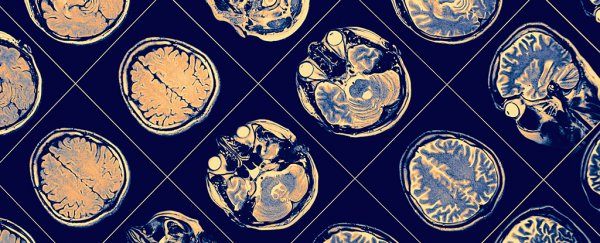As we try and understand Alzheimer's better to go on to be able to treat it better, new research suggests that reclassifying it as six different subgroups could be one useful way forward – so that each type of case can then be targeted and treated differently.
It may sound like a familiar approach, given it was put forward for type 2 diabetes earlier this year. The reasoning is that not all forms of a disease have the same characteristics or need the same treatment.
Right now Alzheimer's is usually classified as either early-onset Alzheimer's or late-onset Alzheimer's, but the new study says that extra categories would mean we get clearer results when it comes to drug testing and future research into the disease.
In other words, rather than treatments being discounted because they don't work across all Alzheimer's patients, they might be found to be very effective in specific cases.
"Alzheimer's, like breast cancer, is not one disease," says one of the team behind the study, Shubhabrata Mukherjee from the University of Washington School of Medicine.
"I think a good drug might fail in a clinical trial because not all the subjects have the same kind of Alzheimer's."
To test the hypothesis, the researchers looked at 4,050 patients with late-onset Alzheimer's and split them into six groups, based on their cognitive functioning at the time they were diagnosed.
Cognitive scores were given in four areas: memory, executive functioning, language, and visuospatial functioning. As the participants came from five different, earlier studies, the test scores had to be standardised before patterns could be teased out.
But patterns did indeed appear: those in the largest of the six groups (39 percent of patients) had scores in all four areas that were fairly close. Those in the second-largest group (27 percent of patients) had memory scores substantially lower than the other scores.
Three of the other groups could be identified by low language scores, low visuospatial functioning scores, or low executive functioning scores compared with the other categories. The final group, 6 percent of patients, had substantially lower scores in two of the four cognitive areas.
The groups were also analysed to find genetic variations between them that might help explain the scoring patterns. A total of 33 SNPs – single nucleotide polymorphisms, or specific locations on the genome – were found to have strong genetic associations with certain subgroups.
That's a solid step up from the 20 or so SNPs already linked to Alzheimer's as a whole (without any subgroups).
One gene variant in particular, the APOE e4 allele, looks like being a strong risk factor for developing Alzheimer's for people with European ancestry – something previous research has suggested – though the team was keen to point out that many people with the allele never develop Alzheimer's at all.
And the researchers themselves say this is only the start of thinking about how we could split Alzheimer's up into more types. The study included several thousand people, but they were all well-educated and European, for example, which is one limitation here.
Nevertheless there's enough in the findings to suggest that we could benefit from distinguishing between categories of Alzheimer's in this way, and from there finding more accurate ways to spot it developing and – one day, let's hope – to come up with a cure.
"The implications are exciting," says one of the researchers, Paul Crane from the University of Washington School of Medicine. "We have found substantial biological differences among cognitively defined subgroups of Alzheimer's patients."
The research has been published in Molecular Psychiatry.
